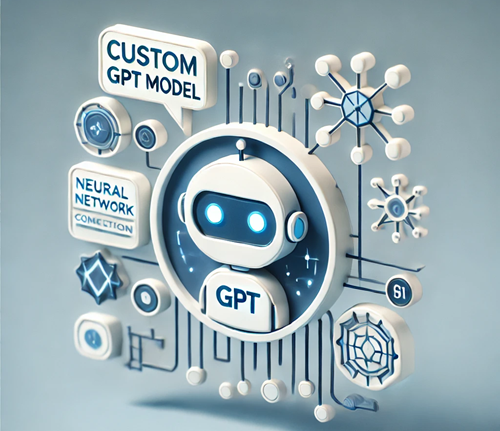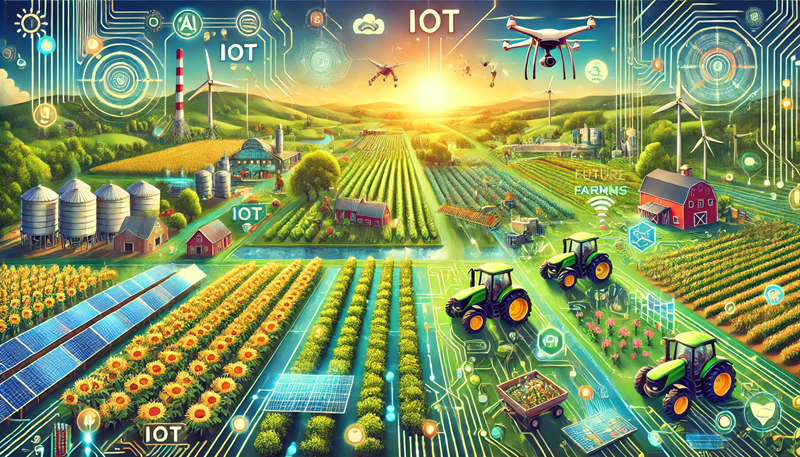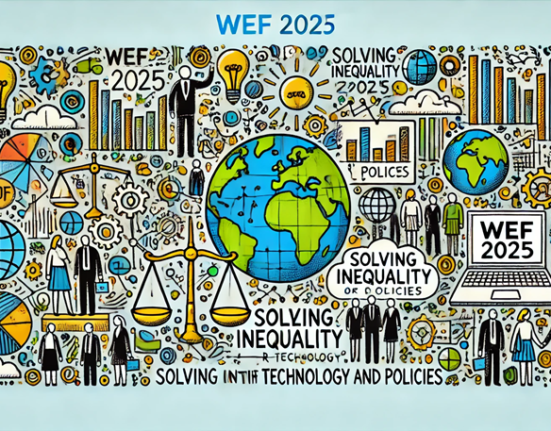The agriculture industry is undergoing a seismic shift as innovative technologies redefine traditional farming methods. The future of farming lies in adopting advanced agrotech trends that address sustainability, efficiency, and productivity challenges. In this blog, we’ll explore the top agrotech trends to watch, offering insights into how they are shaping the future of agriculture.
1. AI-Powered Precision Agriculture
Artificial Intelligence (AI) is at the forefront of transforming farming practices. AI-powered tools and systems offer:
- Real-time monitoring of crop health and soil conditions.
- Predictive analytics for weather patterns and pest outbreaks.
- Optimization of water, fertilizer, and pesticide usage.
AI enables farmers to make data-driven decisions, maximizing yield and minimizing waste.
2. Blockchain for Transparent Food Supply Chains
Blockchain technology is revolutionizing agriculture by creating transparent and secure supply chains. Key applications include:
- Tracking produce from farm to table.
- Ensuring authenticity of organic and sustainable farming practices.
- Reducing inefficiencies and fraud in agricultural transactions.
Platforms like AgriDigital are leading this transformation.
3. IoT-Enabled Smart Farming Systems
The Internet of Things (IoT) is making farms smarter by connecting devices and collecting valuable data. IoT applications in agriculture include:
- Smart irrigation systems for efficient water use.
- Sensors to monitor soil, weather, and livestock health.
- Automated equipment for planting, fertilizing, and harvesting.
IoT is a critical driver of precision farming and sustainability.
4. Vertical Farming for Urban Agriculture
Urbanization is driving the adoption of vertical farming, which offers:
- Controlled environments for growing crops in urban spaces.
- Reduced water and pesticide use.
- Year-round farming regardless of weather conditions.
Innovators like AeroFarms and Plenty are leading the vertical farming revolution.
5. Autonomous Machinery for Labor Efficiency
Autonomous farming machinery is transforming labor-intensive agricultural tasks. Examples include:
- Self-driving tractors for plowing and sowing.
- Robotic weeders for precision farming.
- Automated drones for pesticide spraying and crop monitoring.
Companies like John Deere are spearheading this trend.
6. Renewable Energy in Farming
Sustainability is a key focus in modern agriculture, and renewable energy solutions are playing a major role. Popular applications include:
- Solar-powered irrigation systems.
- Wind turbines for powering farm equipment.
- Biogas plants for waste-to-energy conversion.
Renewable energy reduces operational costs and environmental impact.
7. Biotech Solutions for Sustainable Farming
Biotechnology is enabling sustainable agricultural practices by offering:
- Genetically modified crops for higher yields and pest resistance.
- Biofertilizers to enrich soil health.
- Biopesticides to protect crops with minimal environmental impact.
Biotech is a cornerstone of future-ready farming.
8. Climate-Smart Agriculture
With climate change affecting global farming, climate-smart agriculture is gaining traction. Key strategies include:
- Developing drought-resistant and flood-tolerant crops.
- Implementing water-efficient irrigation systems.
- Utilizing technology to adapt to extreme weather patterns.
Climate-smart practices are critical for building resilience in farming.
9. Digital Marketplaces for Farmers
Digital platforms are connecting farmers directly with buyers, offering:
- Fair pricing by eliminating middlemen.
- Access to a broader market for selling produce.
- Tools for financial management and crop insurance.
Platforms like DeHaat and Ninjacart are empowering farmers with digital solutions.
10. Big Data for Farm Management
Big data analytics is transforming farm management by providing actionable insights. Applications include:
- Yield forecasting and resource optimization.
- Monitoring crop health and growth patterns.
- Financial planning and inventory tracking.
Platforms like Granular are helping farmers make data-driven decisions.
Why Agrotech Trends Are Essential for the Future of Farming
The adoption of these agrotech trends is not just an option but a necessity to address challenges like climate change, resource scarcity, and global food demand. By integrating technology into agriculture, farmers can enhance productivity, reduce environmental impact, and create sustainable farming systems.
FAQs About the Future of Farming
1. What is agrotech, and why is it important?
Agrotech refers to the integration of advanced technologies in agriculture to improve efficiency, sustainability, and profitability. It is crucial for addressing modern farming challenges.
2. How does IoT impact farming?
IoT enables real-time monitoring and automation, helping farmers make data-driven decisions to optimize resources and improve yields.
3. What role does blockchain play in agriculture?
Blockchain ensures transparency, traceability, and security in the agricultural supply chain, benefiting farmers and consumers alike.
Conclusion
The future of farming is bright with the advent of these transformative agrotech trends. From AI-driven precision agriculture to blockchain-powered transparency, these innovations are paving the way for a smarter, more sustainable agricultural ecosystem. By embracing these trends, farmers and stakeholders can ensure a resilient and productive future for global agriculture.










